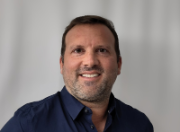To contribute to reducing the carbon footprint of Swiss energy consumption, the Federal Office of Energy provides financial support to around thirty innovative projects per year. We speak to Men Wirz, director of the program.
The Federal Office of Energy (OFEN) aims to concretely encourage the reduction of energy consumption by businesses. In this perspective, a financing and technical support program has been established to support credible and profitable long-term projects in the fields of energy and energy storage as well as renewable energies. This program is intended for businesses of all sizes, research institutes, and universities looking to develop commercially viable technological advancements on a large scale. It is endowed with approximately 25 million Swiss francs per year and reimburses non-amortizable costs – especially those related to non-profitable development tests or operations – up to 40%. This figure will soon be increased to 50%. Men Wirz, the program director, emphasizes the importance of the program in supporting risk-taking businesses.
With about thirty supports granted per year, the OFEN's pilot project program is generating enthusiasm among businesses. What real chances do SMEs have to benefit from funding?
Men Wirz: In Switzerland, many highly innovative players in the energy sector, such as photovoltaic electric or building heating systems, are companies with fewer than 250 employees. Among them, start-ups also have exciting potential, and some have proposed projects that we deemed advantageous for the general interest.
Why implement such a program? Isn't private financing sufficient?
Wirz: Private financing can indeed be difficult to access, especially for SMEs. Some areas do not attract enough investors because any innovative project involves risk. Moreover, many companies active in advanced industries, especially cleantech, operate in a highly competitive environment where resource allocation, whether in time, manpower, or funds, must be carefully evaluated. This can unfortunately lead to project abandonment in some cases. Our role is to help them overcome these obstacles, with the aim of achieving technologies that bring added value not only to innovative companies but also to the rest of society.
Do we have examples of projects funded by the program that have become profitable?
Wirz: Indeed, some projects have produced profitable technologies. We notably supported the project of Designwerk, a Winterthur-based company (ZH) whose electric trucks are now widely commercialized. Another start-up in the Zurich region, Climeworks, benefited from our funding for its carbon dioxide filter prototype in Hinwil (ZH). However, it is challenging to estimate how decisive the program's assistance has been. Many other determining factors, such as economic conditions, market reactions, or the company's own performance, contribute to the success or failure of deploying a technology.
The program offers partial reimbursement (40%) of non-amortizable long-term surcharges. What proportion of the company's investments does this usually represent?
Wirz: It depends on the nature and progress of the project. In the case of a pilot project, all funds invested will ultimately be used to finance the development of a prototype. In this case, all investments are considered non-amortizable surcharges, as the product itself is not intended for commercialization. About 40% of the costs will be covered. In the case of a demonstration project – a more advanced stage leading to a commercializable technology –, the financial assistance we provide generally amounts to about 20% of the investments, depending on the commercial value of the installations.
Do you ever have to refuse funding requests?
Wirz: Yes, but refusal cases are in the minority. The fact that entrepreneurs themselves must ensure the feasibility and commercial potential of their projects, and submit a comprehensive application file, already acts as a filter. While we do offer non-repayable assistance, companies still take risks in investing resources in a project with inevitably uncertain outcomes.
Moreover, a dossier may be rejected due to a lack of innovation. Some entrepreneurs submit a request to develop a technology that already exists, even if it may not yet be developed in Switzerland. However, this dimension is not always sufficient for us to consider the request. On the other hand, it sometimes happens that a dossier is initially rejected but ends up being approved after improvement.
Will the program expand in the coming years?
Wirz: Following the acceptance of the Climate and Innovation Act in June 2023, we will soon benefit from improved support conditions. This will allow us to increase the share of non-amortizable costs we cover from the current 40% to 50%, and even 70% in certain exceptional cases.






